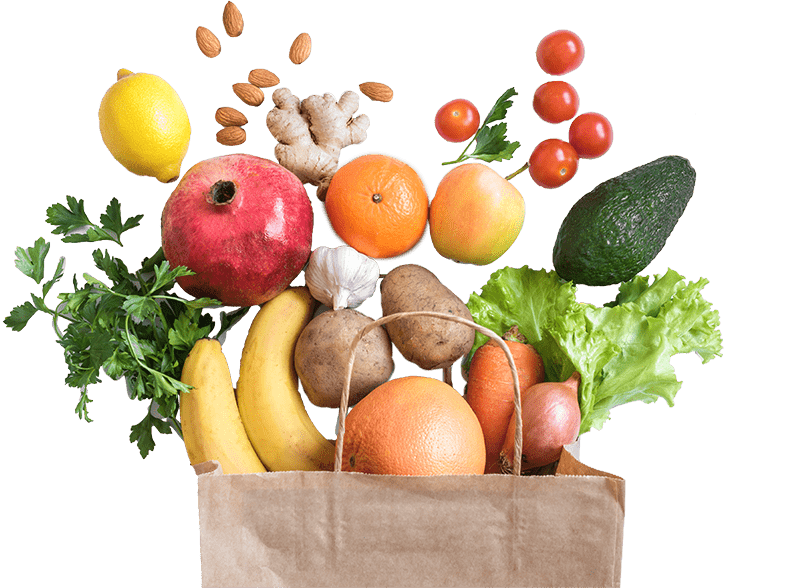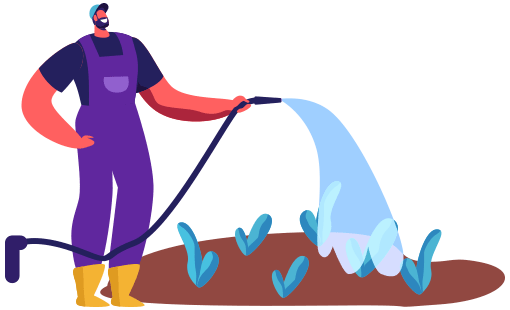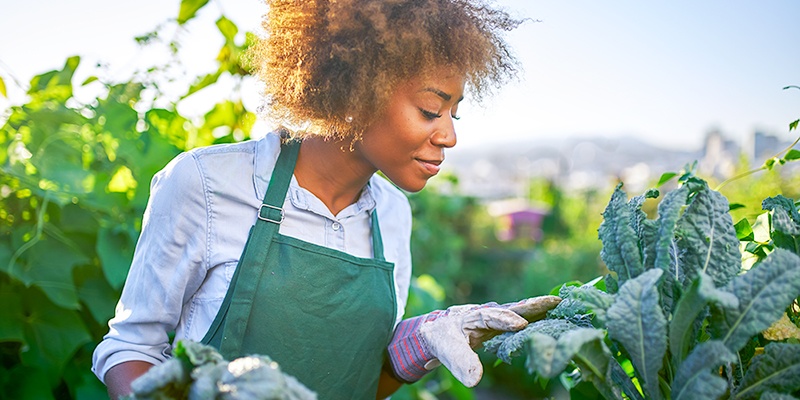We all know that eating fruits and veggies is a great way to maintain a healthy diet. We also know that fresh fruits and veggies are the cream of the crop. In addition to providing you with a variety of nutrients like fiber, minerals, and vitamins, fresh fruits and veggies are naturally low in fat, sodium, and calories. They can even lower your risk of developing certain chronic diseases. To put it simply, fresh fruits and vegetables are the superfoods of superfoods.

June is National Fresh Fruit and Vegetable Month, and to celebrate, we’re encouraging you to kick the summer off right by upping your intake of fresh fruits and vegetables. Of course, you could get your fill of cucumbers, berries, peppers, and tomatoes in a fancy grocery store or farmers market, but did you know that there’s a real health benefit to gardening and growing these foods yourself?
We put together a list of 4 surprising health benefits that gardening can give you. So, grab your seeds and your soil because we’ve got some digging to do.
Benefits To Gardening

Gardening Promotes Overall Health
Frankly, gardening is hard work. It works just about every major muscle group in the body. All that digging, weeding, planting, and harvesting burns calories and strengthens the heart muscle. If you aren’t someone who enjoys physical exercise, working in a garden might just be the active hobby you’ve been looking for. Plus, people who garden are more likely to get a total of seven hours of sleep a night.

Gardening Keeps the Mind Sharp
The health benefits of gardening aren’t just physical, but mental, too. It’s common knowledge that exercise is good for cognitive functions in the brain, but there has been debate in the past about whether or not gardening was enough to affect those cognitive skills on its own. But that debate is now over.
New evidence finds gardening can encourage growth in your brain’s memory-related nerves. In a study out of Korea, 20 patients treated for dementia in an inpatient facility were given gardening-related activities to do. After the vegetables have been planted and the leaves have been raked, researchers discovered that there was some increase in brain nerve growth associated with memory in both males and females. Although studies are ongoing, some medical professionals even believe that gardening could be an effective treatment for dementia.
Gardening Puts a Smile On Your Face

In addition to generally boosting your mood, something that’s been proven in both foreign and U.S. studies, gardening is good for your overall self-esteem. It’s also been shown to help in the fight against depression. In a study published in 2011, a group of people with depression participated in a 12-week gardening intervention study. After the 12 weeks were up, researchers found that several aspects of the patients’ mental health, including depression symptoms, had significantly improved. These improvements lasted months after the study ended.
Gardening also proves to be an effective treatment and recuperating from a stressful event. In another study from 2011, researchers exposed a controlled group of people to a stressful activity. They then divided the group in half and had one half spend time reading quietly and instructed the other half to garden. After the activities, cortisol -a hormone released under stress- levels were measured, and it was clear that the gardening group had recovered from the stress better than the reading group.

Gardening Is Good For The Whole Family
Gardening tends to foster feelings of connection for the entire family and the community, for that matter. Gardening gives you the opportunity to bond with others while working toward a common goal. It also has an extra special benefit for kids. Early exposure to soil and dirt is linked to numerous health benefits, including improving immune function, reducing allergies, and lessening the likelihood of autoimmune diseases.
Remember To Protect Yourself
Gardening is a generally safe activity, but it can pose certain risks to your safety and health as it is with almost any activity. Here’s a list from the CDC of recommended precautions to take while you’re digging in the garden.
- Anytime you’re using chemicals in the garden, pay attention to the product directions. Some pesticides, weed killers, and fertilizers can be dangerous if misused.
- Safety gear is important! Wear gloves, long pants, goggles, and closed-toed shoes.
- Use bug spray and sunscreen.
- Don’t forget to hydrate and take breaks. Overheating can easily sneak up on you.
- Watch the kiddos. Sharp tools, chemicals, and outdoor heat may pose more of a threat to children.
- Pay attention to what your body is telling you. Gardening injuries are more common than you might think. You can easily pull something when you’re toting bags of mulch or cause a repetitive motion injury (like tendonitis) when hoisting shovels full of dirt.
- Make sure your tetanus shot is up to date. Tetanus lives in soil.
Grab a Shovel
The bottom line there are almost endless benefits for both the mind and the body when it comes to gardening. This low-impact physical activity will go a long way in helping you fight against depression, anxiety, stress, obesity. Another great bonus? It can keep you connected to your loved ones. Plus, there’s something special about eating food that you’ve grown yourself. It’s as farm-to-table as it gets.
Did we inpsire you to start planting? If so, don’t forget to be aware of over-exposure to the sun. You can read all about protecting yourself from those UV rays in our skin cancer awareness blog from last month. And as always, if an accident should happen while you’re plowing away, NEC is always a short drive down the road.

